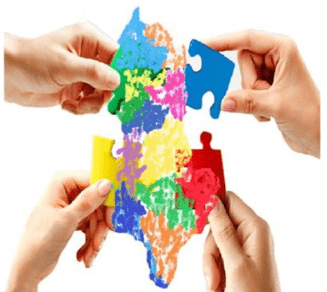By Radu Magdin1
After letting go of its dictatorial past, Albania has embarked on a transformative journey, transitioning into a democratic society supported by a growing open market economy. This period of transition has been marked by significant strides in social, economic, and institutional arenas, culminating in improved productivity across a significant number of sectors. The resulting uptick in employment (although there is a lot of room for improvement), incomes, and standards of living paints a picture of a nation on the rise. However, as Albania looks towards 2025 and beyond, it is imperative to craft a long-term vision that not only acknowledges past achievements but also addresses the development constraints that may hinder a path of durable, sustainable, and inclusive growth.
The strategic priorities for Albania, as it evolves towards the future, must be rooted in a clear vision that seeks to enhance the quality of life for all citizens, support higher education and skills’ development, bring forth new growth sources that expand the revenue base, augment local government capabilities, mitigate environmental issues, and uphold diversity. This vision needs a deep dive into Albania’s developmental performance, particularly in the context of the Sustainable Development Goals, to identify strategic opportunities that can propel the nation forward.
Albania faces a plethora of challenges that threaten to overturn its development trajectory, most of them with deep roots in the country’s past. Beyond key topics such as poverty reduction, mass migration, corruption, and a sizable informal economy, issues such as gender disparities, discrimination, and other societal troubles pose significant hurdles. These systemic issues necessitate comprehensive strategies that not only address the symptoms but tackle the root causes to foster a more equitable society.
The EU Integration Process: A Strategic Asset
The European Union integration process stands as a beacon of hope and a strategic opportunity for many Balkan countries’ continued and sustained development. For Albania, this process has catalysed reforms and institution-building efforts, leading to Albania gaining more and essential financial and technical support, and market access. The strategic importance of EU accession, underscored in key policy documents, serves as a cornerstone for Albania’s future strategy. The recent progression towards EU membership negotiations highlights Albania’s reform achievements and sets the stage for deeper integration into the European framework.
Post-COVID
The COVID-19 pandemic has undeniably impacted Albania, like many of its regional and global counterparts. Despite these challenges, Albania’s management of the health crisis and the subsequent economic downturn presents an opportunity for strategic recalibration. The post-pandemic recovery phase offers a unique moment to focus on strategic priorities that can address existing constraints and leverage new growth opportunities.
Strategic Priorities: Education, Economic Diversification, and Quality of Life
The strategic priorities for Albania are varied, focusing on enhancing education and skills, creating dynamic drivers of growth, and improving the overall quality of life and environment, for the benefit of its citizens. Addressing these areas is crucial for Albania to realise its potential, stimulate economic opportunities, and ensure a sustainable future.
Supporting the education system’s needs for evolution and addressing the skills gap stand as critical components for Albania’s future success. A robust education system not only fuels personal development but also drives economic growth by equipping citizens with the necessary skills to thrive in a dynamic global economy. A focused approach to the skills of the future will position Albania in the leading pack of countries with a clear vision of what work will mean in the next decades.
Identifying and nurturing new sources of economic growth through digitalization, green growth, and broadening the manufacturing and services sectors are also vital. This diversification will create the need for quality jobs, generate essential revenue, and ensure Albania’s competitiveness on the global stage. And, if backed by a supportive and “productive” education system, that provides the economy with employees with the specific skills needed, the circle will be closed in a positive way.
Ensuring that Albania is an attractive place to live and invest in is essential for its future prosperity. This entails significant investments in healthcare, social protection, environmental conservation, and regional development to ensure balanced growth and improved living conditions across the country. Studies show that people don’t necessarily leave a country due to lack of finances, they do so mostly because of overall quality of life problems. These can be solved with a strategic citizen-first approach to policymaking. This also ensures that better-educated workers decide to stay in the country and boost Albania’s economy, rather than Germany’s.
______________________________________________________________________________________________________
1Global Analyst and Consultant, Former Prime Ministerial Adviser in Romania and Moldova






